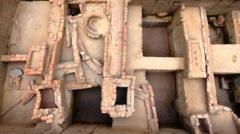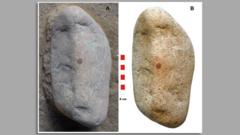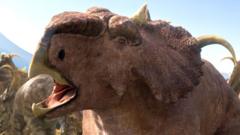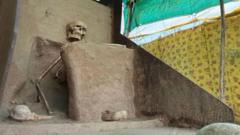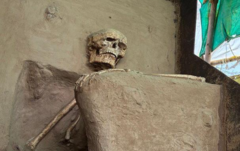In a fascinating archaeological find, scientists have determined that seven skeletons unearthed from a mass grave in Croatia likely belonged to Roman soldiers who lived approximately 1,700 years ago. The remains were discovered during excavations in 2011 at the historic site of Mursa, located in modern-day Osijek, Croatia.
The skeletons, all male and exhibiting various injuries, were described as 'completely preserved'. Mursa itself was a prominent Roman settlement established in the first century BC, vital for trade and craftsmanship.
Researchers from several European archaeological institutions, through meticulous study, have not only dated the remains but have also begun to piece together the lives and potential causes of death of these ancient men. Their research indicates that the individuals were between the ages of 36-50, taller than the average individual of their time, and generally robust in physique.
Interestingly, their diets were predominantly vegetarian, with some consumption of meat and seafood. This contrasts sharply with the expectation of hardy Roman soldiers of the era. The remains show signs of various healed and un-healed injuries, including blunt force trauma and puncture wounds potentially inflicted by arrows or spear tips.
It was also revealed that all the men had experienced forms of pulmonary disease during the later stages of their lives. What's compelling is the DNA evidence indicating a diverse ancestry, suggesting they were not originally from the local area.
The researchers theorize that these men fell victim to historical conflicts, particularly during the 'Crisis of the Third Century', where Mursa was significantly involved. This included the brutal battle of Mursa in 260 CE, a time of political strife and violence.
The mass burial was not customary in Roman practices, indicating extreme circumstances surrounding their deaths. The pit the skeletons were found in was believed to have originally been a water-well, which further adds to the intrigue of how the skeletons came to be disposed of in such a manner.
Ongoing archaeological investigations in the Mursa area continue to uncover remnants of ancient civilizations, providing crucial insights into the turbulent history of this former Roman stronghold.











